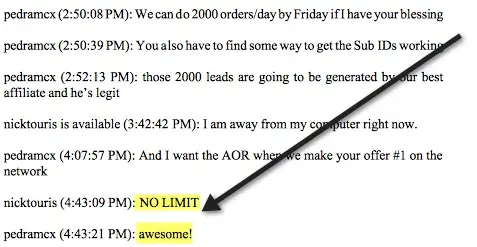A very recent case ruled that the parties conversation on only IM changed the contract, even though there was nothing actually signed to reflect the change (as a software licensing lawyer, I am always looking for cases like this for you). Does this sound like a crazy result? Actually not, so let’s run through the actual IM conversation, the legal logic, and what you can learn from this case.
1) Here is the Conversation (that changed the volume commitment under the contract).
That is it. ‘Awesome’ was interpreted as yes I agree to ‘No Limi’t on volume.
2) Here is the Legal Logic.
The court essentially said that the parties went through an ‘offer and acceptance process’ and changed the volume commitment. Where is the signed document you say? Well, there is none, but there is an offer (by typing ‘NO LIMIT’) and an acceptance (by typing ‘awesome’).
3) Here is What You Should Remember.
The courts in the US are now starting to get more and more comfortable with contracting via electronic means (email or IM), so don’t assume anymore that you have to have a written signed document to change a contract. How do you avoid entering into contract (offer and acceptance) via email or IM?
- Don’t commit to things in a email/IM, and use more non-commital language (i.e. “that is interesting,” “let me talk to my boss,” “let me think about it,” or “not sure … let me get back to you” VS. “yes I agree,” or “we have a deal”), and
- Clarify in any email/IM trail that you still need a written contract to formalize the deal, and that there is no contract/agreement until then. Intent always matters, so if you do not intend to be bound then say that.
So hopefully you are getting the message that things are a changin, and so be super careful about how you communicate via email/IM regarding commitments. Courts are starting to look at these electronic communications and have already construed them as a contract (at least if they look like a ‘legal offer’ and ‘legal acceptance.’)
Resources.
The Law School Summary: Offer and Acceptance
The Actual Court Order and Conclusions of Law.
Disclaimer: This post is for informational and educational purposes only, and is not legal advice. You should hire an attorney if you need legal advice, which should be provided only after review of all relevant facts and applicable law.


